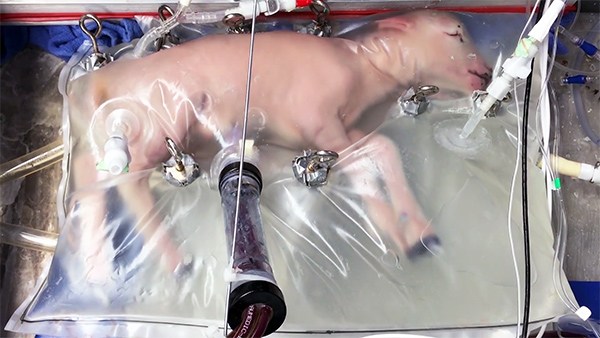Eight fetal lambs were successfully developed to term in artificial wombs at The Children’s Hospital of Philadelphia Research Institute, in a study whose results were published last week in the journal Nature Communications.
They were equivalent in human terms to 22 to 24 weeks of gestation at the start of the experiment, providing a potential template for the care of extremely premature infants, who represent about 6 percent of premature births in the United States, which make up about 10 percent of all births.
The remarkable feat was accomplished through the use of “Biobags” that mimic the natural conditions of a uterus:
The Biobag may not look much like a womb, but it contains the same key parts: a clear plastic bag that encloses the fetal lamb and protects it from the outside world, like the uterus would; an electrolyte solution that bathes the lamb similarly to the amniotic fluid in the uterus; and a way for the fetus to circulate its blood and exchange carbon dioxide for oxygen.



